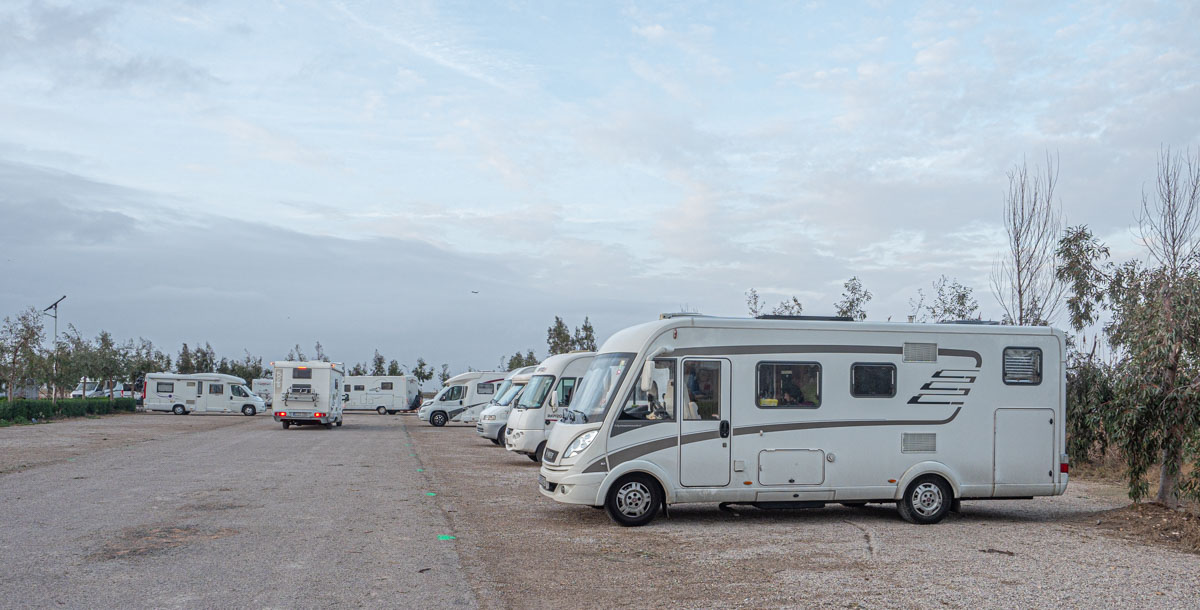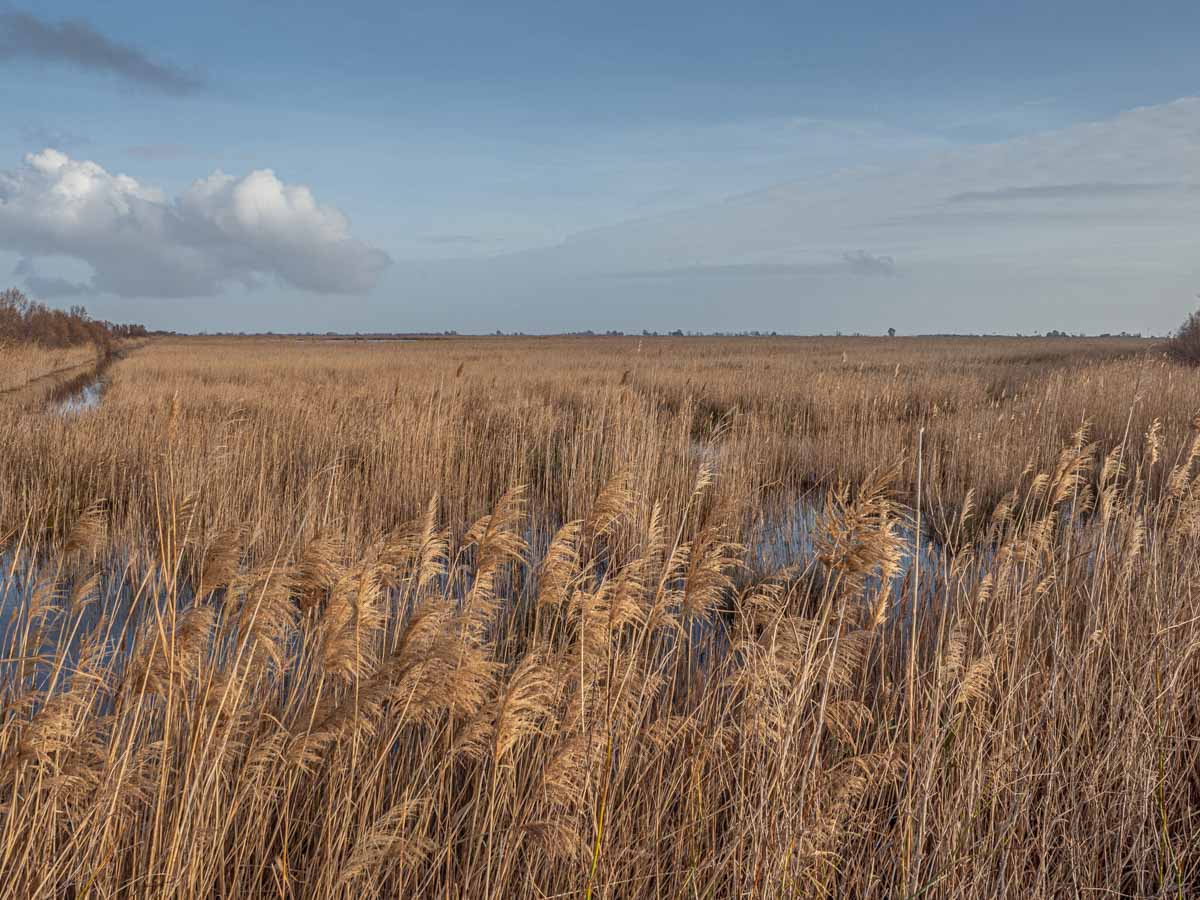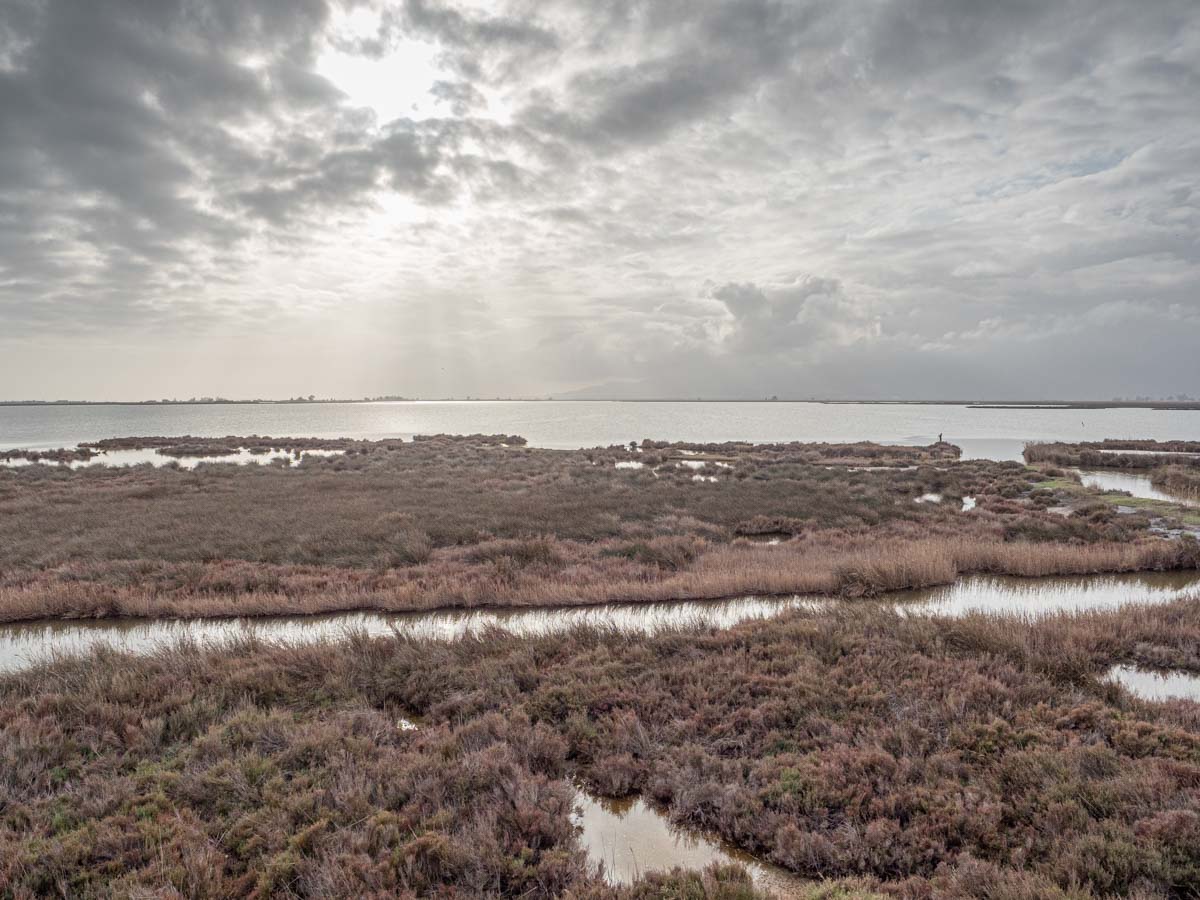We were finally joined by another motorhome on our aire next the sea, so Basil didn’t feel so lonely. The notice board on the aire said a man from the local Commune came round regularly to collect payment, but he never appeared, so another free night for us.
While looking for somewhere to stay tonight, I had come across a highly rated free aire in the Ebro Delta, to the south of Tarragona. It was further than we intended to travel but it looked superb.
Another day was therefore spent driving along motorways. In France Basil’s bulky frame is limited to a very reasonable 110kmh. We quickly reached the Spanish border, which as usual in Euroland didn’t really look like a border anymore, except for a small blue sign containing the word “Espana”. Basil then had to drop his speed to a sedentary 90kmh, which I have to say feels just too slow.
The border lies in the Pyrenees as this big mountain range reduces to not much more than hills as they approach the Mediterranean. Looking inland, however, we could see much higher mountains heavily covered in snow.
As I mentioned in an earlier blog, Northern Spain suffered an horrendous storm last week, and as we proceeded south we could see the result: flooded fields and hundreds of small trees flattened.
We finally exited the motorway and made our way across the pancake flat land which constitutes the Ebro Delta to a large, well appointed, aire which has been built by the adjacent restaurant (40.659320, 0.675383) – free but €3 to empty and fill. They have presumably built it in the hope that their isolated restaurant will attract a proportion of the motorhomers overnighting. The menu looks full of local specialities like eel, but it is also rather expensive and so I think their only income from us will be for bread in the morning.
The aire, by the way, is so good, that it has probably 40 motorhomes on it in January.

Better than the aire or the restaurant is the adjacent delta wetlands which are a haven for birds, more than 300 species have been recorded. Sarah and I went for a walk with the dogs, me, binoculars round my neck.

There were many different species to see, but the highlight was, what looked from a distance like concrete bollards standing in the marsh. Through the binoculars it was apparent that these were a new species to me – Night Herons. It was a colony of 10 or more of these birds asleep, with their heads tucked away. They are called Night Herons for a good reason – they are mainly nocturnal and so I think we were very fortunate to see them.

On my return to the aire I had a long conversation with a Dutch couple, which mainly involved discussing bird species! Of course they spoke excellent English but they did not know English bird names, and I, of course know no Dutch. Google translate mostly served us well, but also showed the danger of relying on computer translation, when the the Dutch for a bird called a Bittern in English, was actually translated as “stir-fry”! Anyone for a Bittern chow-mein.
Tomorrow we have a short journey to the south of Valencia where we hope to stay on a campsite for a few nights to decide on our itinerary for the next couple of weeks.
